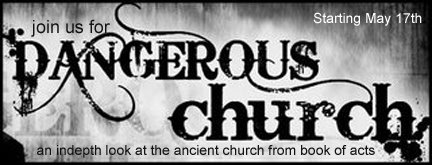2 And the twelve summoned the full number of the disciples and said, “It is not right that we should give up preaching the word of God to serve tables. 3 Therefore, brothers, pick out from among you seven men of good repute, full of the Spirit and of wisdom, whom we will appoint to this duty. 4 But we will devote ourselves to prayer and to the ministry of the word.” 5 And what they said pleased the whole gathering, and they chose Stephen, a man full of faith and of the Holy Spirit, and Philip, and Prochorus, and Nicanor, and Timon, and Parmenas, and Nicolaus, a proselyte of Antioch. 6 These they set before the apostles, and they prayed and laid their hands on them.
The Twelve did not force a solution on the church, rather they summoned the full number of the disciples in order to share the dilemma with them. They said, "It is not right that we should give up preaching the word of God to serve tables." before we go any further, let it be noted that there is no hint, no clue, no thought that the disciples apostles regarded social work as inferior to their work or beneath their position. This was not a question of position, as much as it was a question of calling. They had no 'freedom' to be taken away from the task Jesus had given them. So they proposed a remedy: pick out from among you seven men of good repute, full of the Spirit and of wisdom, whom we will appoint to this duty. But we will devote ourselves to prayer and to the ministry of the word.
The delegation of social welfare to the Seven is commonly thought to have been the origin of the diaconate. It may be so, for the language of diakonia is used in verse 1 and 2, as we shall see later. Nevertheless, the Seven are not actually called diakonia. The church saw the point of the apostles remedy: And what they said pleased the whole gathering, and they chose Stephen, a man full of faith and of the Holy Spirit, and Philip, and Prochorus, and Nicanor, and Timon, and Parmenas, and Nicolaus, a proselyte of Antioch. The next move was to commission them, so, these they set before the apostles, and they prayed and laid their hands on them.
Key Take Away Principles: What does this have to do with us? Short answer: God calls ALL of his people to ministry, and he calls different people to different ministries.
We must realize that it is not accidental that the work of the apostles who were to devote their time to studying, prayer, and preaching and those Seven who were to devote themselves to social needs, were both called 'diakonia.' Meaning, that neither ministry is superior to the other, and they BOTH REQUIRE people who are 'full of the Spirit' to execute them. So the difference is not in importance, rather in calling and gifting.
All disciples, without exception, are to mimic the one who came to serve, not to be served. What we often find though, is that the standards of preaching and teaching decline since the pastor(s) has little time to study or pray. The congregants do not exercise their God-given (mandated) calling, since the pastor(s) does everything himself. When this happens, we have a church that is hindered from growing into the full maturity that Christ has destined it to.
So, what happens when we do this? Well, lets look at the text: Acts 6:7, "...the word of God continued to increase, and the number of the disciples multiplied greatly in Jerusalem, and a great many of the priests became obedient to the faith." The word cannot spread when the ministry of the word is neglected.
So, far, we have seen three tactics which the enemy uses to destroy his church:
- He tried kill it by force
- He tried to kill it by hypocrisy
- He tried to kill it from within through grumbling and complaining.
However, the apostles were intuitive when it came to satan's plans. So today, we need to use the same type of spiritual discernment to spot out the enemy's plans. We also need the faith the disciples used to make the enemy's attacks impotent.


No comments:
Post a Comment